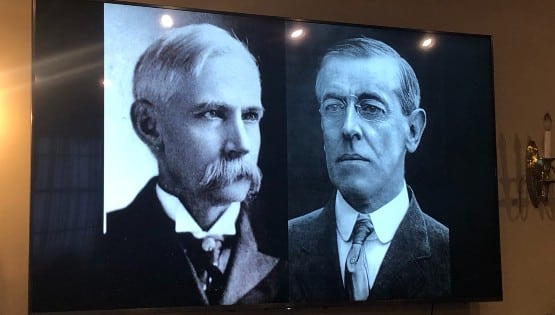A group of four distinguished Virginia law professors, three former Virginia Attorneys General and the League of Women Voters of Virginia have each filed amicus briefs in the Supreme Court of Virginia supporting the petitioners’ appeal in Vesilind v. Virginia State Board of Elections, a case backed by OneVirginia2021, a nonpartisan organization seeking redistricting reform in the Commonwealth.

The lawsuit, which challenges the General Assembly’s 2011 drawing of eleven House and Senate legislative districts, states the current boundaries violate the Virginia constitution’s requirement that districts be composed of territory that is “compact.” The Circuit Court of the City of Richmond heard evidence in a three day trial in March of this year, and concluded that while plaintiffs had met their burden of showing that the legislature did not give priority to the constitutional requirement of compactness, the court nevertheless was constrained to rule for the legislature because the issue was “fairly debatable.” The plaintiffs, in their petition for appeal, and the amici, in their briefs supporting the plaintiffs, all strongly disagree with the circuit court’s decision. They argue that the General Assembly did not give priority to the constitution, but instead “subordinated” compactness to “discretionary” districting criteria, giving “lip service” and conclusory consideration to the Virginia Constitution.
“In requiring that legislative districts be compact, the drafters of Virginia’s constitution understood the intent of this requirement was to protect fundamental rights — the right to vote and the right to representation,” Howard said.
Howard explained that in drawing legislative districts, the General Assembly may take into account discretionary factors, such as adhering to county or city boundaries, communities of interest and avoiding contests between incumbents.
“But the amicus brief argues that constitutional mandates — here, that districts be compact — must be given priority over such discretionary factors,” he said. “Only by enforcing constitutional mandates such as compactness, contiguity and equality of population can the courts assure Virginia’s citizens that they can hold their representatives accountable for their policy decisions. The essential dimensions of democratic government are at issue in this case.”
In their brief, the Law School Professors ask the Supreme Court of Virginia to require the General Assembly to demonstrate that it has used some constitutionally defensible standard of compactness in drawing districts.
“Only then can the court decide whether the action the legislature has taken meets the fairly debatable standard of review and is therefore within legislative prerogatives,” Howard said.
Howard is joined on the brief by professors Rebecca Green of William & Mary Law School, Mark E. Rush of Washington and Lee University and Carl W. Tobias of the University of Richmond School of Law. Other amicus briefs are being filed in the appeal to support the petitioners, including briefs by the League of Women Voters of Virginia, and former Virginia Attorneys General Ken Cuccinelli, Mary Sue Terry and Stephen Rosenthal.
The former Virginia Attorney Generals’ brief likewise asserts that the legislature must give priority to the requirements of the constitution in redistricting, and that the General Assembly must make a showing by evidence that it has made a bona fide effort to comply with the constitutional requirements of compactness. At the outset, the legislature must define the standards for compactness to enable the line drawers and the courts to apply the law properly. The Attorneys General contend that they are thwarted in their duty to provide legal advice and guidance to the General Assembly and the Executive branch on the requirements of compactness under the constitution due to the lack of clarity in the case law on this issue.
The brief filed by the League of Women Voters of Virginia stresses the extraordinary harm inflicted on the Commonwealth and its voters by extreme partisan gerrymandering, enabled by the failure to enforce the Virginia constitutional requirement of compactness. Gerrymandering decreases competition, polarizes the electorate, and suppresses voter turnout and participation in the electoral process. The brief points to numerous examples of line drawing expressly intended to promote partisan advantage for the majority party, and to disenfranchise minority party voters and their candidates.
Gregory Lucyk, a former Senior Assistant Attorney General and now President of the Board of OneVirginia2021, emphasizes that this is an exceptionally important case. It is a “case of first impression” because the Supreme Court of Virginia has never addressed the priority of the Virginia constitutional requirement of compactness in the balance against purely discretionary, non-mandatory criteria. Lucyk also states he is “overwhelmed by the enormous support and recognition of the importance of this case from the community of eminent legal scholars, the bi-partisan former Attorneys’ General, Republican and Democrat, and numerous, grassroots citizens’ organizations. All are asking the Court to take this case to correct the error in the lower court, and to clarify the Virginia Constitution’s requirement of compactness intended to provide a meaningful restraint on extreme partisan gerrymandering.”
It is expected that the Court will take up the cases for consideration of further review during the August Writ Panels set for the week of August 21st.










